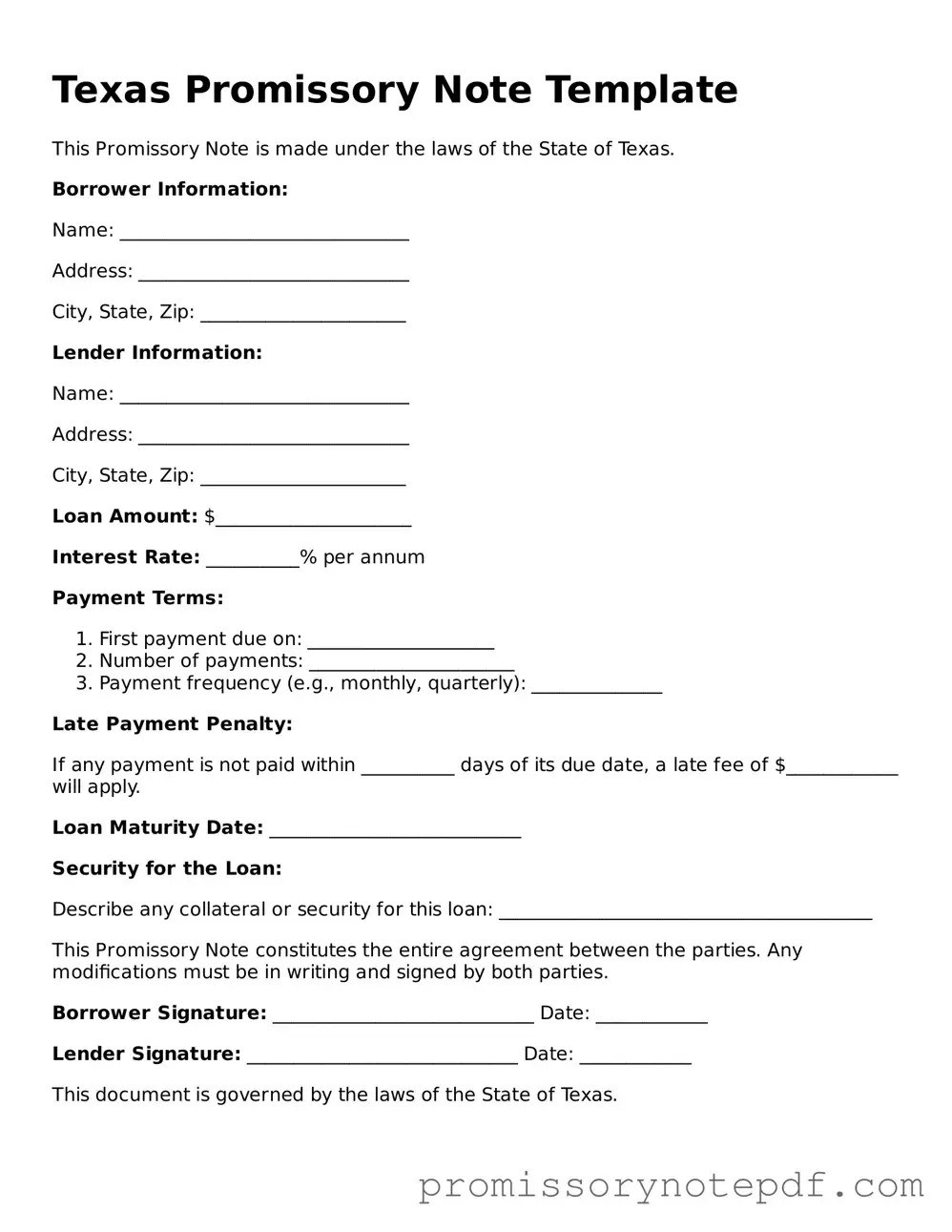The Texas Promissory Note is similar to a Loan Agreement, which outlines the terms and conditions of a loan between a borrower and a lender. Like the promissory note, a loan agreement specifies the amount borrowed, the interest rate, and the repayment schedule. However, it often includes additional details such as collateral, covenants, and conditions that must be met during the loan period. This comprehensive nature makes loan agreements suitable for more complex borrowing situations.
Another document akin to the Texas Promissory Note is the Installment Agreement. This type of agreement breaks down the repayment of a loan into smaller, manageable payments made over time. Similar to a promissory note, it details the total amount borrowed and the payment schedule. The key difference lies in the fact that an installment agreement is often used for purchases, such as cars or appliances, where the buyer pays in installments until the full price is settled.
The Texas Promissory Note is also comparable to a Mortgage. A mortgage is a specific type of promissory note that is secured by real property. While both documents outline the borrower's promise to repay the loan, a mortgage also includes a lien on the property. This means that if the borrower fails to repay, the lender has the right to take possession of the property through foreclosure. This added security makes mortgages a common choice for home loans.
A further similar document is the Secured Promissory Note. This document is like a standard promissory note but includes collateral to back the loan. Just as in a traditional promissory note, the borrower agrees to repay the loan with interest. However, the secured note provides the lender with an added layer of protection, as they can claim the collateral if the borrower defaults. This makes secured notes appealing for lenders who want to minimize risk.
The Texas Promissory Note also shares similarities with a Personal Guarantee. In this document, an individual agrees to be personally responsible for a loan taken out by a business or another individual. While a promissory note focuses on the terms of the loan itself, a personal guarantee adds a layer of security for the lender by ensuring that an individual’s personal assets can be pursued in case of default. This is particularly common in small business loans.
Lastly, the Texas Promissory Note is related to a Credit Agreement. This document outlines the terms under which a lender extends credit to a borrower. Like a promissory note, it details the amount of credit, interest rates, and repayment terms. However, credit agreements often cover a broader range of financial products and may include various fees and conditions that apply to the credit being extended. This makes them essential for understanding the full scope of a borrower’s obligations.
